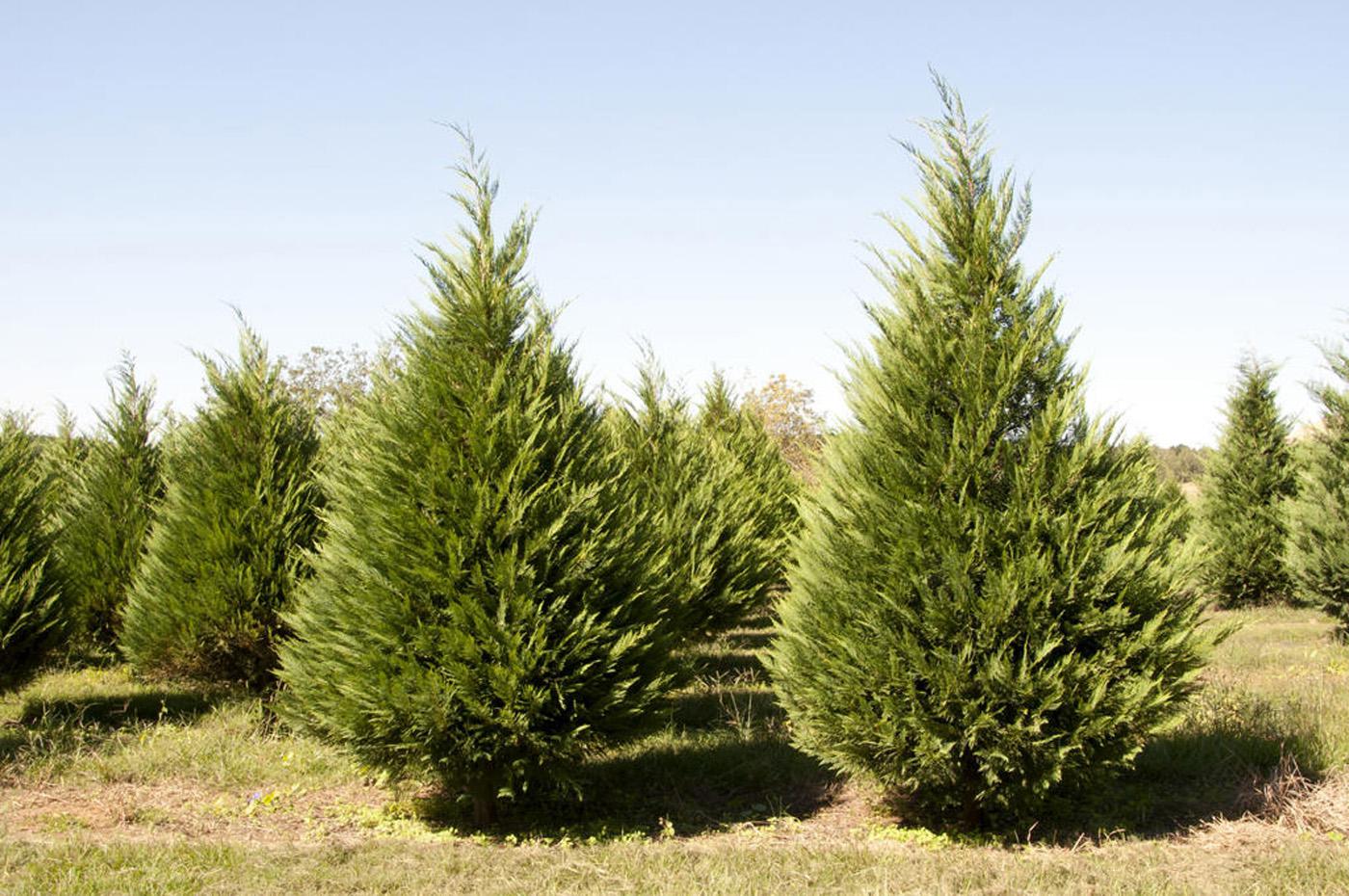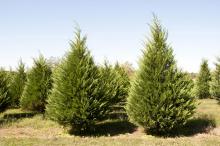Information Possibly Outdated
The information presented on this page was originally released on November 15, 2011. It may not be outdated, but please search our site for more current information. If you plan to quote or reference this information in a publication, please check with the Extension specialist or author before proceeding.
Real Christmas trees offer benefits, memories
By Kaitlyn Byrne
MSU Ag Communications
MISSISSIPPI STATE – Each year, many Mississippians must decide whether to buy a live or an artificial tree to celebrate the Christmas season.
John Kushla, Mississippi State University Extension forestry specialist at the North Mississippi Research and Extension Center, said artificial trees are usually less expensive than real trees and can last for many seasons, but real Christmas trees provide benefits that artificial trees do not offer.
“Real trees, when kept in water, are more fire resistant than artificial Christmas trees,” Kushla said. “Also, Mississippi’s choose-and-cut tree farms provide nice experiences for families. The tradition of picking and cutting a Christmas tree can provide a lot of good memories.”
Mike Marolt, owner of Pine Mountain Tree Farm in Corinth, said he sees many families creating memorable holiday traditions while selecting trees at his farm.
“The kids look forward to picking out the tree,” he said. “There’s just an excitement about going out and getting a tree each year, and you don’t get that same kind of excitement if it sits in the closet all year long.”
“Two of our Mississippi species have excellent needle retention when kept in water are Leyland cypress and Virginia pine,” Kushla said. “These trees can last three to four weeks.”
Kushla said the different species offer important benefits to buyers.
“Leyland cypress is non-aromatic, so it is well-suited to folks with sensitivities,” he said. “Virginia pine has sturdy limbs, which work better with heavy ornaments.“
Kushla said maintaining any real Christmas tree’s freshness is paramount, so cut trees should be placed in water immediately when brought home.
“You need one quart of water per inch of tree diameter,” he said. “Initially you can add about 1 to 2 tablespoons of corn syrup and 1/2 teaspoon of bleach to the water. The corn syrup provides sugars for the tree, and the bleach prevents mold from developing.”
There are safety precautions that need to be followed when keeping a real Christmas tree in the home.
“Trees should not be placed directly in sun or near heater vents,” Kushla said. “Decorative lights should be unplugged before you leave the house or go to bed, and discard lights with cracked or frayed wires.”
Marolt said real Christmas trees do not pose any more risks than artificial trees for pets or young children. One way to keep children from pulling on the tree or ornaments is to elevate a smaller tree on a platform so it is out of reach.
Some farms sell living trees that can be planted after Christmas. But cut trees should be set out for trash pick-up after they dry out, never burn them in a fireplace, Kushla said. Some cities also offer tree recycling services.
A listing of the almost 20 Christmas tree farms in Mississippi can be found on the Southern Christmas Tree Association’s website at http://www.southernchristmastrees.org.



